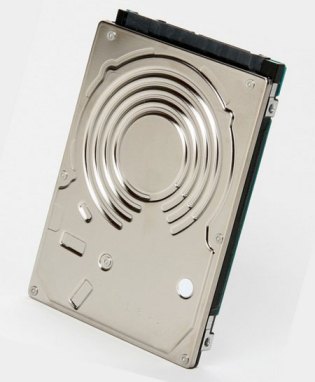 Folks like gamers and serious power users who try to wring every last bit of performance from notebooks know that hard disk drives are often a week link in the chain; since they have to sip less power and take up far less space then their high-performance desktop cousins, they’re often slower, less responsive, and less capacious than high-end users might like—and that makes whole systems start to feel sluggish and unresponsive.
Folks like gamers and serious power users who try to wring every last bit of performance from notebooks know that hard disk drives are often a week link in the chain; since they have to sip less power and take up far less space then their high-performance desktop cousins, they’re often slower, less responsive, and less capacious than high-end users might like—and that makes whole systems start to feel sluggish and unresponsive.
However, storage developer Toshiba is looking to bridge the gap, announcing its new MKxx56GSY series of 2,5-inch hard drives aimed at notebook systems and compact desktop form factors like all-in-one PCs. And instead of being typical 2.5-inch hard drives, these units bring both speed and storage heft to the table, sporting 7,200 rpm speeds and capacities up to 500 GB.
“This new family delvers faster overall system performance, which boosts user productivity—a key differentiator that PC manufacturers can provide to commercial and consumer notebook users,” said Toshiba Storage Device Division marketing VP Maciek Brzeski, in a statement.
The MKxx56GSY series sports 16 MB of buffer memory, a 3 Gb/s SATA interface, and an average seek time of 11ms; the units consume 5.5 watts when spinning up but between 2.1 and 2.3 watts when operating, and dip to 1 watt in low power idle and 0.13 watts when sleeping. The drives will available in one-platter configurations with capacities of 160 and 250 GB, and two-platter setups with 320 and 500 GB capacities; interestingly, the 320 GB version has two platters and three data heads, where the 500 GB version has a more-traditional two platters and four data heads. The drives also follow Toshiba’s pledge to reduce or eliminate hazardous substances from its drives.
The drives should start shipping to PC makers in the third quarter in limited quantities, with volume production starting in the fourth quarter.


